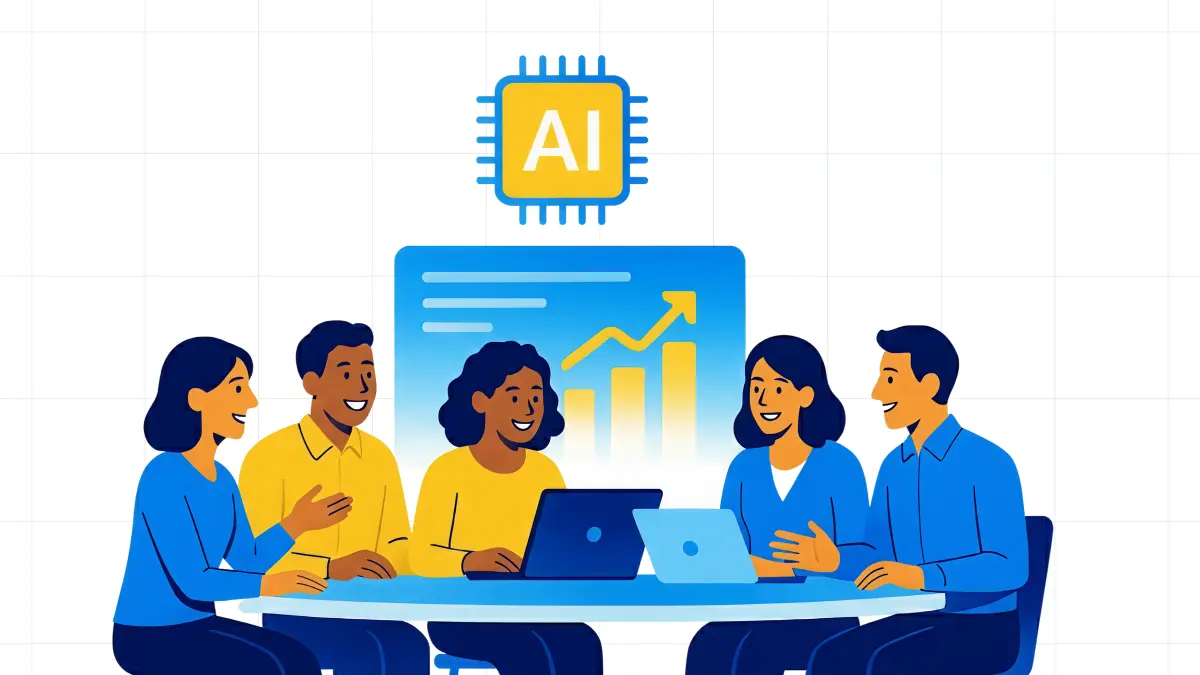Manager-Free Companies: Are They the Future or a Fad?
Gallup says managers drive 70% of engagement. But what if AI takes over coaching instead?

At a recent dinner, I joined a discussion about AI, generational shifts, and the future of work.
One HR leader described how their company eliminated managers, arguing that traditional management now blocks progress rather than helps.
With AI and greater autonomy, employees can be more productive without direct oversight. I admire leaders willing to challenge convention and experiment.
The conversation got me thinking on my commute home.
I’m usually a contrarian and struggled with this idea. I reflected on my experience trying to develop better managers and mentally made a report card.
Gallup’s studies show managers account for 70% of employee engagement variance. Effective managers boost productivity, retention, and profitability.
AI could significantly enhance managerial effectiveness.
AI in HR Today
with Anthony Onesto
Subscribe for exclusive insights from Anthony Onesto, Chief People Officer at Suzy, and learn how AI is reshaping HR, enhancing employee engagement, and driving business success.
TOGETHER WITH
I’ve worked with some great leaders, but most are imperfect, and companies rarely invest enough in developing them.
High-growth companies often promote top performers, assuming they’ll make good leaders. But being a strong contributor doesn’t guarantee leadership skills.
Companies like Spotify use flatter structures and autonomous teams to speed up innovation by reducing managerial bottlenecks.
Performance management often struggles to balance business growth and employee development, making management’s “report card” look poor.
Leadership is challenging, but should we eliminate all leaders? Sports show a strong link between coaching and success.
Without managers, who provides guidance and coaching, or shares valuable experience?
Like in Good Will Hunting, experience matters—book smarts aren’t enough. As Yoda said, “the greatest teacher, experience is.”
AI could fill this void, acting as a knowledgeable coach for every employee.
We’re still far from that future, though fiction like Dave Eggers’ The Every explores these ideas.
What are the realistic steps before we reach a future with drastically fewer managers? This question keeps me curious about management’s evolution.
Companies are already reducing management layers. With investors demanding profitability, cost-cutting and performance management are in focus.
As management layers shrink, managers’ span of control increases—potentially doubling from the typical 5-6 employees per manager.
Managers already feel stretched, and larger teams will only add to their workload as they manage up, down, and across the company.
What if AI could help managers expand their span of control without losing the quality of coaching employees receive?
An AI coach could understand work context, help track tasks, join meetings, and provide feedback to managers and employees.
This sounds like the future described above, right?
But this technology exists today. Solutions like ChatGPT or Gemini can act as thought partners, and tools like Kona (part of 15Five) combine performance and engagement data to deliver personalized coaching.
(Disclosure: I work for 15Five.)
Research consistently shows that managers play a pivotal role in organizational success, impacting engagement, productivity, and retention. Google’s Project Oxygen found effective management boosts morale and team performance.
However, too many management layers or poor leadership slow innovation and agility. The best organizations find a balance: skilled management with minimal bureaucracy and empowered employees.
Explore these solutions as the trend toward fewer managers and broader spans of control accelerates. While “no managers” may not become the norm, I see AI playing a central role in supporting teams.
What do you think—could your organization work without managers? Is this the future?
AI in HR Today
with Anthony Onesto
Subscribe for exclusive insights from Anthony Onesto, Chief People Officer at Suzy, and learn how AI is reshaping HR, enhancing employee engagement, and driving business success.
